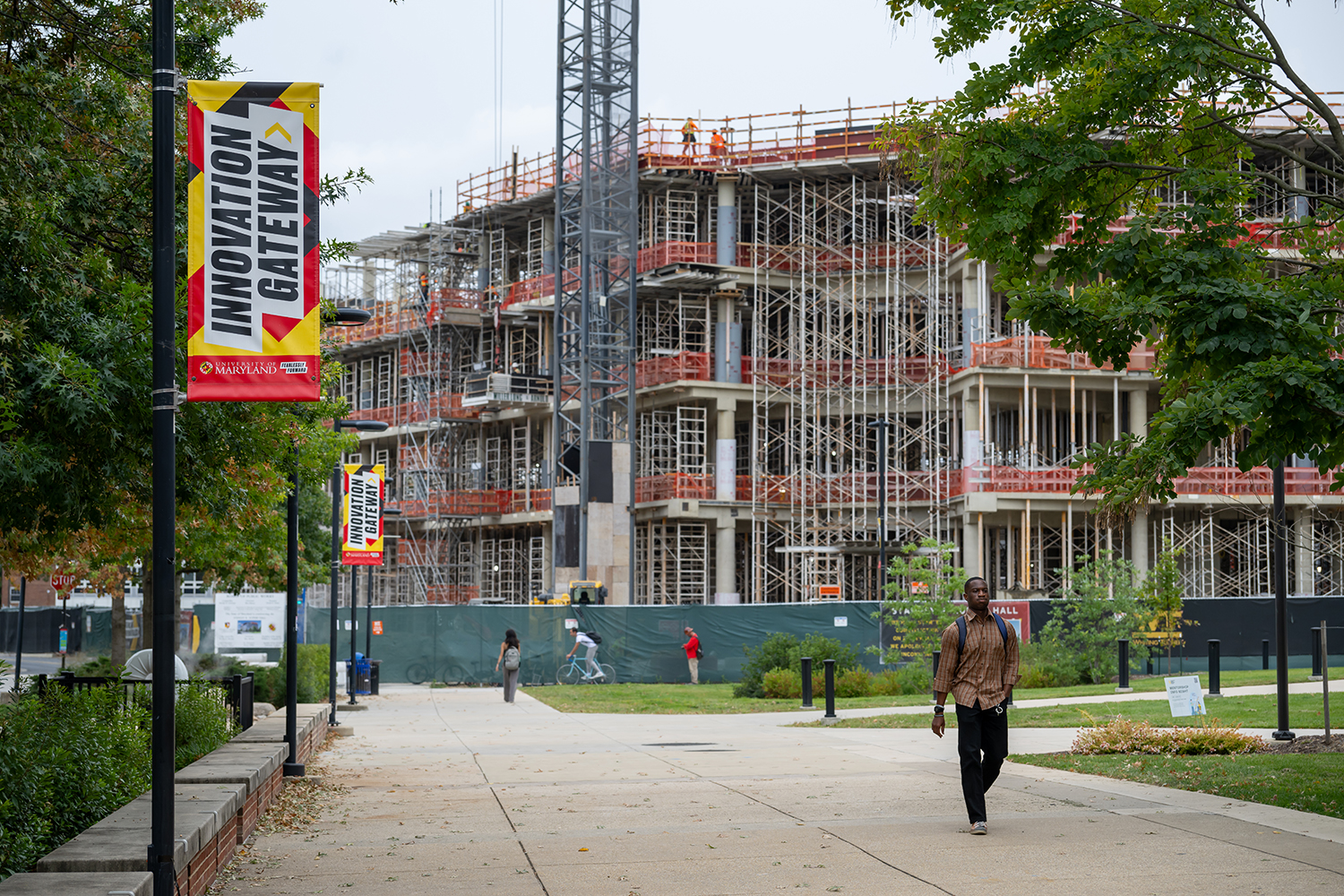News Story
Stanley R. Zupnik Hall Will House New Quantum Spaces

As construction continues on the A. James Clark School of Engineering’s newest building, Stanley R. Zupnik Hall, plans for assigned departmental spaces are beginning to take shape. The University of Maryland Quantum Technology Center (QTC) will expand its total number of labs, educational spaces, and offices into the new building upon its completion.
In addition to offices reserved for faculty and graduate students, the basement of the building will house an enclosed quantum suite, which will include four labs, desk space for student researchers, meeting space, and a teaching lab for undergraduate quantum courses. The suite will also include a communal lobby area that will create a shared space for building a quantum community.
“Zupnik Hall will give a huge boost to quantum technology research and education at UMD,” says Dr. Ronald Walsworth, QTC Director and Minta Martin Professor. “These state-of-the-art spaces will further advance UMD’s leadership as the Capital of Quantum.”
The basement location is key to the success of the quantum research and teaching labs. Quantum effects are very sensitive to disturbance, requiring a stable concrete foundation that provides a low vibration environment.
The expansion of the QTC spaces aligns with UMD President Darryll Pines’ focus on developing a robust quantum research program at UMD. As part of a broader statewide outreach, Maryland Governor Wes Moore recently announced a $1B “Capital of Quantum” Initiative, a partnership between the state, the University of Maryland, and the private sector.
For the 2025-2026 academic year, the Department of Electrical and Computer Engineering debuted a Minor in Quantum Science and Engineering for undergraduate students, a multidisciplinary program open to both Engineering and College of Computer, Mathematical and Natural Sciences (CMNS) students. This is the first UMD quantum program aimed at educating undergraduate students in quantum science.
“Along with the University of Maryland, the Clark School of Engineering and the Department of ECE fully intend to be at the forefront of quantum education and training the quantum engineers of the future,” says Senur Ulukus, Chair of the ECE Department. “The expansion of our quantum research and lab spaces will further strengthen our commitment to what promises to be one of the most significant technological developments of the 21st century.”
Currently, there are approximately 100 quantum graduate students, mainly in engineering and physics. New quantum spaces in Zupnik Hall will provide more research space for current students, as well as provide lab spaces for additional quantum faculty members that will be hired in the future to accommodate an increased demand for quantum researchers.
The further expansion of QTC spaces corresponds with its mission to Innovate, Translate, and Educate. The center aims to “innovate” quantum at UMD by leading cutting-edge research in the field.
Developing partnerships with private and public sector organizations is a key goal, allowing researchers to “translate” quantum technologies to useful products in the future
And finally, a key element of QTC’s mission is to “educate” the next generation of quantum scientists.
“I’m particularly excited about the quantum teaching lab in Zupnik Hall,” says Walsworth. “It will be a key component of UMD’s new Minor in Quantum Science and Engineering, providing students with hands-on experience with cutting-edge quantum hardware.”
Published May 15, 2025









